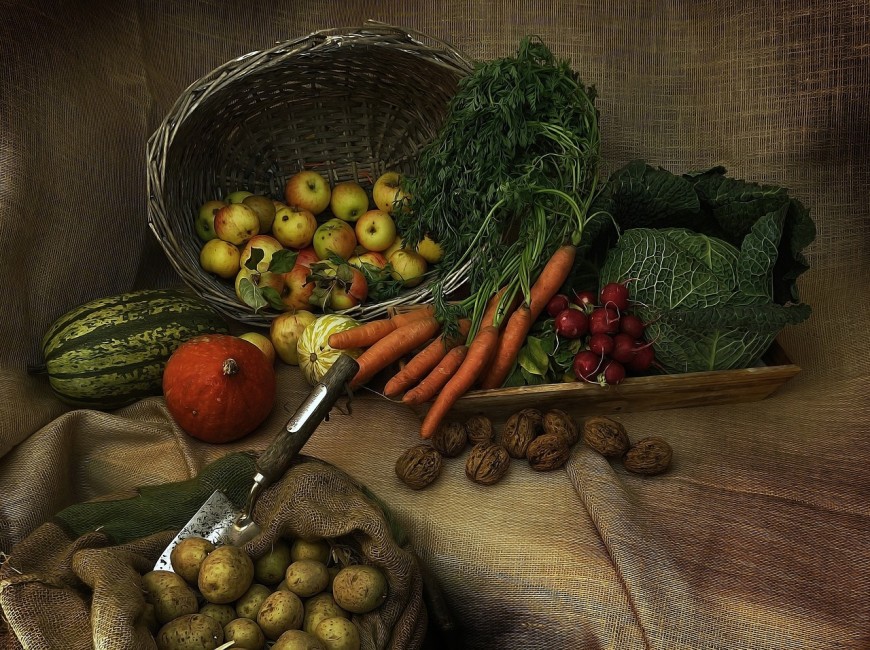CfP: “Food Studies – Quo vadis?”
Interdisciplinary potentials for the research of the food history of the Middle Ages
2024/12/18 by Dr. Stephan Ebert
Research projects on nutrition are often labelled as food studies. But, what are food studies of the Middle Ages or respectively pre-modern times? The conference will consider examples that address current research projects and their methods as well as theoretical and methodological ideas for framing a pre-modern food history and thus sharpen the concept of food studies.

Research projects on nutrition are often labelled as food studies. These are generally understood as an analysis of food and its interrelationships between science and society in the past, present, and future. According to the free encyclopaedia Wikipedia, food studies involve a variety of disciplines such as agricultural science, nutritional science, ethnology/cultural anthropology, gastronomy, history, philosophy, sociology, and literature.
The research focus of food studies is therefore the relationship between nutrition and food as well as human experience (Miller/Deutsch 2009). However, more detailed definitions are rare. The Routledge International Handbook of Food Studies (Albala 2013), for instance, even avoids a definition altogether. Methodologically, it has been suggested that food studies should be understood as food audit in which a dietary analysis is used to visualize the entanglement of production and the meaning attributed to it in society by examining agro-food systems and applying the actor-network theory (Murcott/Belasco/Jackson 2013).
Agro-food studies set similar emphases with its focus on food regimes, which involve the interplay of supply chains and their control by multiple actors (Ermann et al. 2017). Climate adaptation programmes such as the “From Farm to Fork” strategy formulated by the European Union take approaches of this kind into account in order to implement a sustainable food system.
These approaches are strongly shaped by the present and easily run into limitations when analysing pre-modern, particularly medieval, subjects. These limitations can, for example, consist of the source-based tradition, the social and power-political structures of the time, or economic factors. The national terms used to describe the history of food show how differently it is characterized from a historical perspective: food history, Ernährungsgeschichte, storia dell'alimentazione, or histoire de la gastronomie. They also highlight different focal points of historical research. So, what are food studies of the Middle Ages or perhaps pre-modern times?
In medieval studies, the history of food is not regarded as an independent sub-discipline, but rather understood as part of everyday and environmental history (with close links to social and economic history) (Goetz 2014; Hartmann 2017). Historiography, and especially German medieval studies, have made a name for themselves in the study of medieval food culture by working out the networks of the transfer of dietary and culinary knowledge and analysing the culinary culture of the era itself. Of course, the importance of religion for medieval culinary culture and European identity has also been recognized. Interdisciplinary attempts to combine archaeological and archaeobotanical findings with historical studies have helped to clarify the picture of the medieval diet. Today, digital source corpora such as CoReMA allow the computer-aided analysis of German-language cooking recipes from the Middle Ages.
It is time to bring together the various approaches and disciplines and to discuss what characterizes food studies in medieval studies. The conference will therefore consider examples and approaches that address current research projects and their methods as well as theoretical and methodological ideas for framing a pre-modern food history and thus sharpen the concept of food studies. The following topics shall be discussed:
- What is specific about the history of nutrition/food studies in the Middle Ages or is it only to be understood in the context of the pre-modern era?
- Are there possibilities for periodization according to alimentary criteria?
- Which areas of food studies can be researched from a medievalist perspective and which cannot?
- How can new perspectives lead to more insights regarding the history of food by bringing together different disciplines?
- Where are desiderata and links for more interdisciplinary approaches?
- And: Food Studies – quo vadis? What do new approaches look like, which theories and combinations of methods promise new perspectives in medieval research?
Due to the alimentary nature of the subject, an interdisciplinary orientation is intended. The conference is aimed at early career researchers as well as established scholars. Contributions from the fields of agricultural history, archaeology/archaeobotany, gender history, geography, history, cultural anthropology, literary studies, medical history, religious studies/theology, sociology, or linguistics are very welcome.
We invite interested participants to submit proposals with a short abstract of 300 words. Proposals can be prepared in German or English. The presentations should not exceed 20 minutes and will be followed by a discussion. The conference languages will be German and English.
We intend to publish the conference papers. We will also attempt to cover travel cost and accommodation.
Abstracts should be sent to Dr Stephan Ebert by 2 March 2025.
